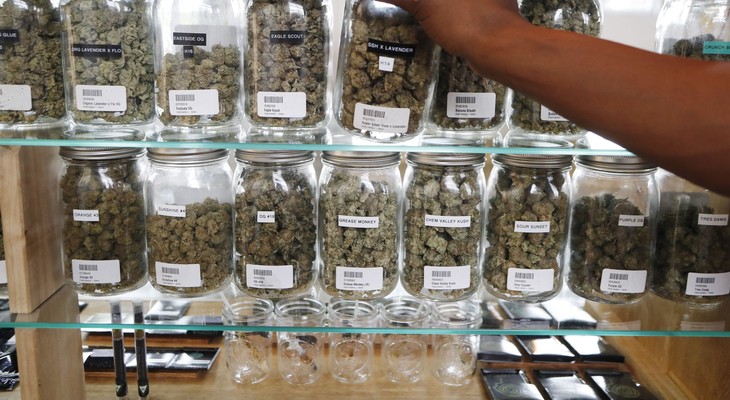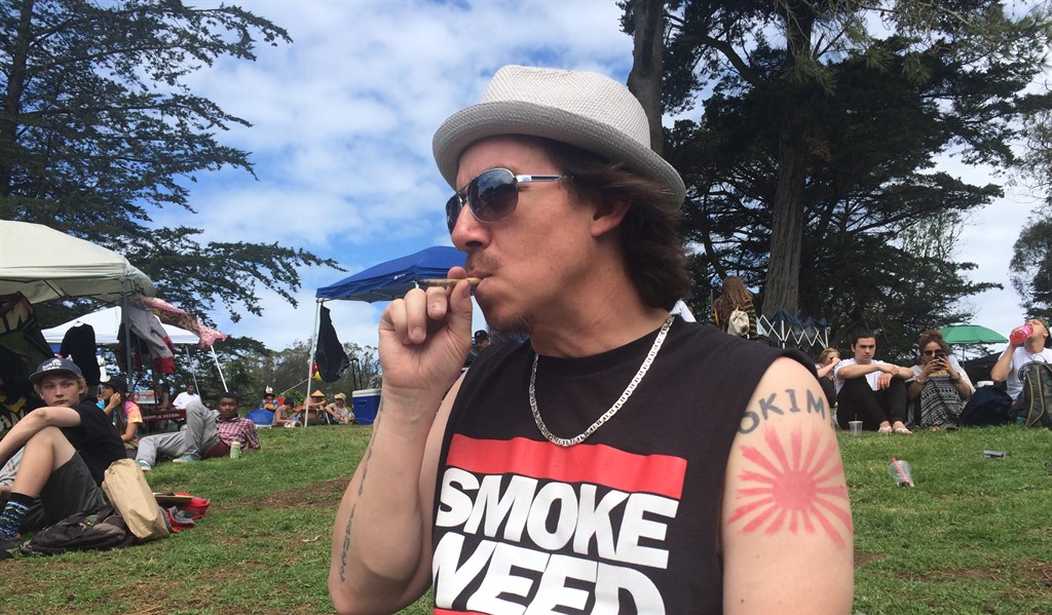Many concerned people pointed out — and were scorned and mocked by both sides for doing so — that legalizing pot would be a gateway to legalizing harder drugs. Not only is weed a gateway drug that opens up some users to trying more things, but the process by which marijuana was foisted on the public has also blazed (lol) a trail for dope aficionados to get more substances on the market.
Even though it remains a violation of federal law to possess or distribute marijuana, many towns and states simply went ahead and legalized it anyway. The premise they used to crack open the door was that some people had a medical need for pot, and thus “dispensaries” (once called “head shops”) were opened. Once these had been forced into communities, it was a pretty light lift for liberal locales to go ahead and approve recreational use, too.

Now that this tactic has been pioneered, magic mushrooms are next up on the docket. In June, CNN touted studies that show ‘shrooms have all sorts of fabulous medical benefits:
[Mycologist (mushroom scientist) Paul Stamets] told CNN. “Psilocybin mushrooms are nonaddictive, life-changing substances.”
Small clinical trials that have shown that one or two doses of psilocybin, given in a therapeutic setting, can make dramatic and long-lasting changes in people suffering from treatment-resistant major depressive disorder, which typically does not respond to traditional antidepressants. …
Psilocybin…is also showing promise in combating cluster headaches, anxiety, anorexia, obsessive-compulsive disorder and various forms of substance abuse.
Amazing! It’s a wonder drug! These scientific studies are just in time to legitimize the increasing number of bald-faced drug dealers dispensaries that are popping up in the usual places. Bloomberg reports:
Magic mushrooms are moving from the margins to the mainstream. In the past two years, at least six ’shroom dispensaries have opened in Vancouver, which recently decriminalized hard drugs and has become a key testing ground for broader policy reform. Similar—albeit more discreet—shops are opening in US cities where mushrooms have been decriminalized, such as Oakland, Calif., and Portland, Ore.
Commercial sales are still illegal in the US and Canada, but these black-market businesses operate through loopholes including religious freedom exemptions, gifting programs, and pop-up events. Digital sellers proliferate on social media, where anonymous accounts openly hawk heavily branded wares.
“Drug dealers always win,” declares Coca Leaf Café owner Dana Larsen, a cannabis activist who says dispensaries such as his are key to advancing mushroom legalization by normalizing recreational use… (emphasis added)
Related: Study: Weed Makes You Stupid
Way back before these things were regulated, we used to have cocaine in our Coke and codeine in our health tonic. Eventually, people realized how destructive those things were, and society got together to frown upon intoxication as a hobby. But things have changed now: Americans have embraced so many foolish libertine stances while simultaneously swapping virtue and individual responsibility for corporate-government facilitation.
In 2018, the FDA designated Psilocybin — the compound in ‘shrooms that the body converts to psychoactive psilocin — as a Breakthrough Therapy, granting UK mental health researcher COMPASS Pathways approval for clinical trials, reported Psychedelic Science Review:
COMPASS Pathways receives US Food and Drug Administration (FDA) approval for clinical trials using psilocybin to treat treatment-resistant depression (TRD). Research sites in the UK, Canada, and the Netherlands have already received regulatory approval. Across all the sites, 215 patients with TRD will take part in the study. Phase III trials will follow if this study is successful.
No, I don’t understand why the U.S. FDA is granting approval to a British company to conduct research in Canada and Holland, either. But you can bet that global Big Pharma is lining up for its piece of the pie. Bloomberg reveals:
But who gets to capitalize on magic mushrooms—and how they gain access—remains a key question. The global pharmaceutical psilocybin market, led by companies such as Johnson & Johnson, is predicted to reach $6.9 billion by 2027, according to Data Bridge Market Research.
This is a departure from how pot has been handled. “Medical marijuana” was the key to opening the door that led to locally permitted recreational use, but the “medical” part has yet to materialize in FDA or Big Pharma terms. Psilocybin, on the other hand, appears to have genuine monetizable psychoactive qualities, and drugmakers are getting in on the action. It appears there will be no “equity programs” to make sure “disadvantaged peoples” get to open up local ‘shroom shops. The FDA’s co-opting ensures that the socialized medicine-Big Pharma complex will be all over this.
While it’s hard to root for either side in the upcoming disposition of the rights to profit off ‘shrooms, at least FDA regulation and the attendant profiteering of drugmakers will likely keep recreational tripping on the wrong side of the law — and encourage enforcement.
The libertarian in me doesn’t care what people do to themselves. But so long as I have to pay for it in any way (and that includes the public money required to support people who break their brains with drugs and the tragedy of the children they produce, abuse, and neglect), I’m against it.










Join the conversation as a VIP Member